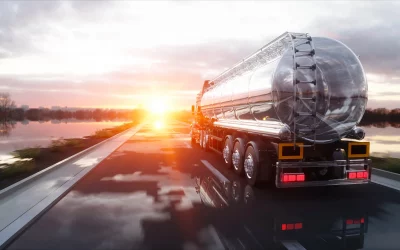Should I Post on Social Medica After a Truck Accident?
Most of us grew up in a period when a fender-bender or a side-scratch was mostly a private matter between two individuals, and the only way you’d hear about an accident that didn’t involve someone you knew was if it was broadcast on the news. But, these days, it doesn’t matter whether an accident is big enough for the media to notice.
Before the cops arrive, the information will be put on Facebook; photos will be shared on Instagram, tweets will be sent out, and potentially even live-streamed. Whether you have a single car or a fleet, you must be prepared for legal repercussions and social media management.
Free Consultation
In Person | Phone | Zoom
It cannot be overstated that this is not 1950, and any firm that does not have social media savvy in its DNA will swiftly fall behind. Drivers must be aware that they may be captured when an accident happens. Your driver may not be at blame, but a video showing him jumping out of the truck and yelling may have more impact on a judge or jury than dry charts about approach angles.
You may, however, employ the same tools to defend yourself! People engaged in the accident or onlookers’ social media accounts may have images, remarks, or even videos that might affect your case.
This is the knowledge you would not have had access to twenty years ago; today, individuals who are best able to uncover and use this information are putting themselves at a great advantage. The American Bar Association (ABA) noticed this and created a primer on the admissibility of social media evidence in court.
Keep in mind that it does not stop in a courtroom.
Today’s ordinary individual on the street has a megaphone, for better or worse. As we’ve seen in recent instances involving a major airline, the reputational damage caused by a viral event may far outweigh any real responsibility. Even if you aren’t at fault, that viral video of a raged motorist might cost you a lot of money. These expenses are recognized even before the disaster occurs.
When Social Media Doesn’t Work
While social media may be used for good, it can also be used against you when filing a personal injury claim. It might impair your recovery prospects if you mention anything on social media that is detrimental to your case. You may mention anything that casts doubt on the case’s facts. You could say something that makes you seem untrustworthy.
You can contradict your testimony.
You may say anything on social media that contradicts what you’re asserting in court. The defense will contest your ailments if, for example, you claim to have a broken arm yet post on social media that you’re going bowling. When filing an injury claim, you must always be honest about your injuries and losses. Social media postings that contradict one other might utterly derail your argument.
Check-Ins
Check-ins on social media sites like Facebook, Foursquare, and others might demonstrate that you’re doing things that contradict the ailments you’re reporting. For example, if you claim to have restricted mobility, you shouldn’t attend your monthly yoga session. Location postings may be used against you as evidence.
You may demonstrate your abilities.
Inadvertently, social media postings might show the opposite side what you’re physically capable of following your injuries. If you share a photo of your kids on the ski slope, the other party may inquire who shot the photo. They’ll have evidence that you’re on a ski slope if the response is you. What you write has the potential to cast doubt on your argument in unexpected ways.
Family and Friends’ Reactions
Even what witnesses post on social media might be detrimental to your case. They may refute your allegations about your injuries. They may claim how much you wish to be compensated for your losses. These things may jeopardize your case’s evidence and cast you in a poor light.
Why Are Posts on Social Media Allowed?
The Colorado Rules of Evidence apply to all trials in Las Vegas and across Colorado. According to the rules of evidence, what someone says outside of court is usually not admissible at trial. In many cases, out-of-court utterances are classified as inadmissible hearsay.
However, there is a standard except for a party’s statements. Because you’re a party to the lawsuit, your words to individuals outside of court may be used against you in an injury claim.
Because your social media postings are considered statements, they may be used against you in court. Statements made on social media by relatives and friends are also admissible if they contradict a statement made in court by the same individual.
But I’m going to do better than everyone else!
You could believe that if you’re cautious, you can still utilize social media throughout your accident case. You could believe that you can properly filter your social media postings by reading everything you publish with a critical eye.
Unfortunately, it’s all too simple to say anything that may be used against you without realizing it. You never know how the opposite side will twist your words and posts. Trying to keep track of your social media use while your recovery is on the line is too dangerous.
Isn’t it possible to limit the number of people that may see my page to only my friends?
Even if you limit access to your Facebook profile to friends only, there are ways for others to view what you post. First, if they know any of your pals, they might ask them to provide the information freely.
Second, they may use Colorado’s Discovery Rules to their advantage. You may be required to provide records as a result of these requirements. Even if your account is set to private, the opposing party may demand that you submit copies of your social media information.
In Court, How Do Social Media Battles Play Out?
A disagreement on social media might add to the difficulty of your case. You and your attorney may need to make more court appearances to determine if you must submit social media data to the other party.
On the one hand, courts have found that social media privilege exists. Setting your status to friends only or private will not exclude you from creating appropriate social media records.
The key to social media discovery, though, is demonstrating relevance. Colorado discovery regulations prohibit parties from requesting enormous volumes of documents in the hopes of finding anything relevant to the case. This is referred to as a fishing excursion. These competing legal interests may result in a court fight, further complicating and stressing your case.
What am I supposed to do?
If you’re filing a personal injury lawsuit, don’t share any personal information on social media. If you have no choice but to utilize social media, limit it to like other people’s posts and sharing news items.
You should search your name to discover what information is available about you. Request that friends and relatives did not bring up the matter. It’s better if you stay away from social networking platforms until your case is completely handled.
To explore your situation, contact a Colorado Springs accident lawyer.
Many people find modern technology perplexing, and not all attorneys can stay on top of the social media game. Warrior Law can assist you not only win your truck accident case but also manage your social media to keep one step ahead of the competition. Call 719-300-1100 or use our contact form to request a free case assessment.







